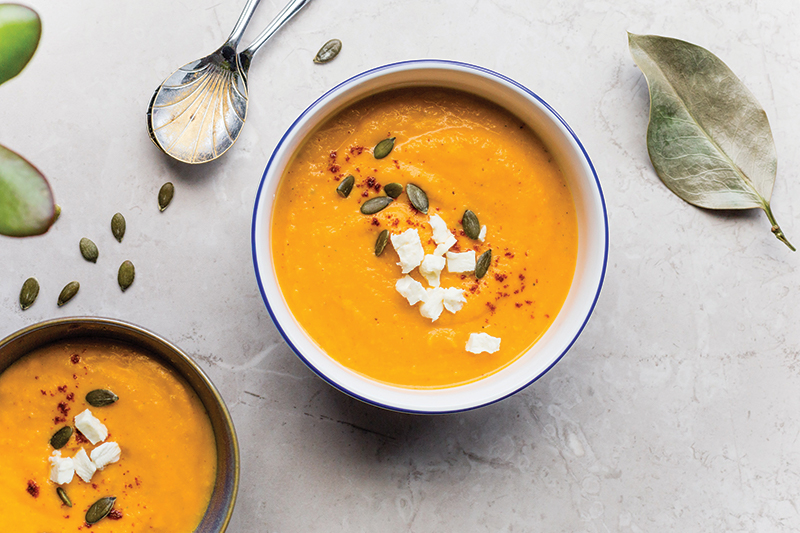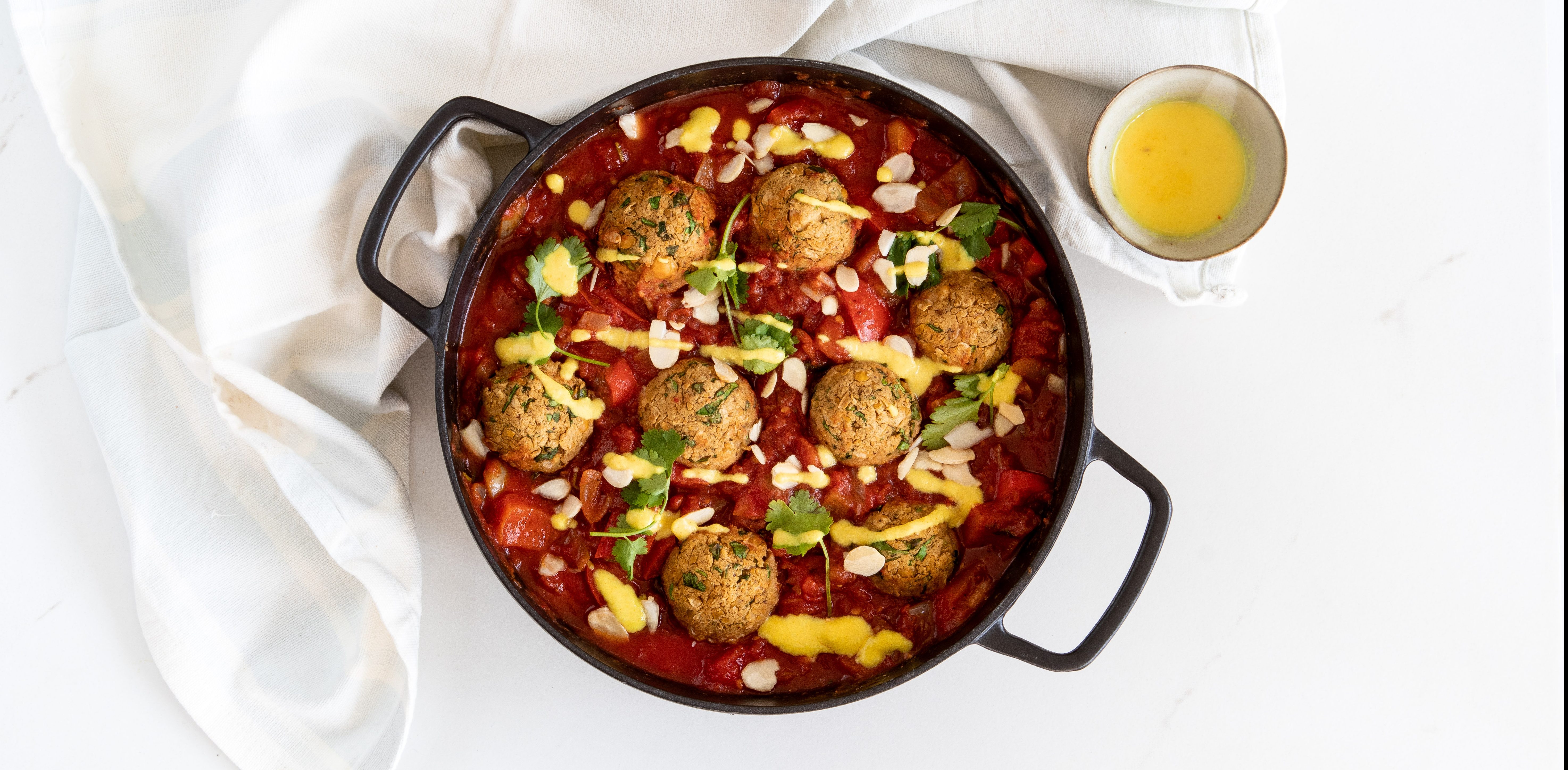Going Vegan? Pros, cons and how to stick to it
Going Vegan? Pros, cons and how to stick to it
Share
January has been and gone and whether you tried Veganuary and loved it, or you’re totally over it, or you’re now looking to incorporate plant-based food long term, then Gosh! Food nutritionist Fiona Lawson is here to help you succeed without meat all year round, not just in January…
Chances are you haven’t heard of Matthew Glover or Jane Lane. It is more likely, however, that you’re familiar with Veganuary. The idea, born in the Yorkshire-based couple’s kitchen in 2013, has exploded since its inception into a ‘new year, new you’ must for many.
What seemed like a fad to cynics, veganism is here to stay with an estimated 542,000 Brits opting to enjoy an exclusively plant-based diet, and those numbers expected to rise in 2020. Veganuary is the ideal starting point for the thousands of Brits looking to make the switch, but what are the pros and cons of eating a plant-based diet long term?
THE PROS AND CONS
PRO: HIGH FIBRE
Did you know that 90% of Brits are not consuming enough fibre every day? It’s one of the biggest health-concerns we face. But when upping your intake of vegan-friendly whole grains, pulses, fruits and vegetables, you should hit your target of 30g fibre daily with ease. Reaching your fibre intake goals is associated with several benefits, including maintaining a healthy body weight.
PRO: PLANT DIVERSITY
We call this ‘eating the rainbow’ as we should all be eating 30 different plant foods each week! Adopting a vegan diet makes this much easier, especially when you consider how many vegetables are used to make plant-based products. By eating a wide range of plant foods, you’ll benefit from a host of nutrients that affect everything from your gut bacteria to your immunity (particularly important at this time of year). If you used Veganuary as an excuse to try in-season vegetables and different recipes, continue!
PRO: MONEY-SAVING
By eating a whole foods-based vegan diet, you’ll likely find your grocery bill goes down. Fruits, vegetables, whole grains and pulses are all pretty cheap, which means you’ll have lots left over to buy those delicious nut butters and the occasional vegan treat.
CON: NO VITAMIN B12
Contrary to popular belief, there’s no reliable plant source of vitamin B12. You need to pay attention to this nutrient, as it helps to keep you blood and nerve cells healthy. It also protects your all-important DNA. If your Veganuary is turning into a long-term vegan diet, make sure you take a high-quality vitamin B12 supplement.
CON: JUNK FOOD
A vegan diet doesn’t automatically mean a healthy one! You can, after all, live off chips and sweets and still be a vegan. Focus on eating as many fresh fruits and vegetables as possible. It’s important to read the label of any vegan products and make sure the ingredients are ones you recognise and can source.
CON: LOW CALCIUM
Along with iron, vitamin D and omega-3 fatty acids, calcium is another nutrient that’s likely to be low on an exclusively vegan diet. This essential mineral not only maintains strong bones and teeth, but it also contributes to normal metabolism. During Veganuary and beyond, focus on eating calcium-rich green leafy vegetables and sesame seeds, along with some calcium-fortified plant milk.

5 WAYS TO SUCCEED GOING VEGAN
1. PLAN AHEAD
Fail to prepare, prepare to fail. Preparation is without doubt, a recipe for success. Whether it be preparing food in advance, or simply mapping out a weekly vegan food plan, you’ll increase your chances of not slipping back into your old, uninspired ways. Gosh!’s products are ideal components for the preparation process. Find some amazing and unique recipes that can be consumed all hours of the day, at work, at home or on the go at www.goshfood.com/recipes
2. STOCK UP ON SNACKS
It may have been the case in the past that you had a drawer in the office stocked with snacks that didn’t exactly compliment your waistline. Drive the change by stocking-up your drawer with nuts, dried fruit and whatever other plant-based joys that tickle your taste buds instead. By removing temptations you’ll be on your way to success this year.
3. CHECK THE MENU
‘Are you ready to order?’ Don’t feel compelled to rush into ordering food when eating out. Look at the menu in advance and take your time to investigate what’s in your food when eating at cafés and restaurants. There’s no harm in asking the waiter or waitress for some more information on the food on the menu if you’re not sure. Remember, even some classic dishes are easy to ask for the ‘vegetarian or vegan-friendly’ option.
4. KNOW WHERE TO LOOK
Food shopping can be tedious at the best of times. Supermarket shelves are littered with foods of all varieties. Knowing where to find plant-based alternatives can be a fraught task. So, if you like buying food in person, do your research in advance of visiting the shops. To make things easier, it might be better to shop online.
5. BE ADVENTUROUS
New Year, new you, same food. Of course not! Omitting animal products from your food routine doesn’t mean you have to lose all sense of fun when cooking for you and your family. Vegan food can extend the realms of what you thought were possible with a grill, oven and frying pan. Don’t simply substitute the meat products in classic meals, feel free to get your creative juices flowing and experience some fresh and new tastes by inventing new dishes.
You Might also Like
Credit: Pexels, Unsplash, Freepik, Rex Images, Shutterstock
















FOLLOW BESTFIT